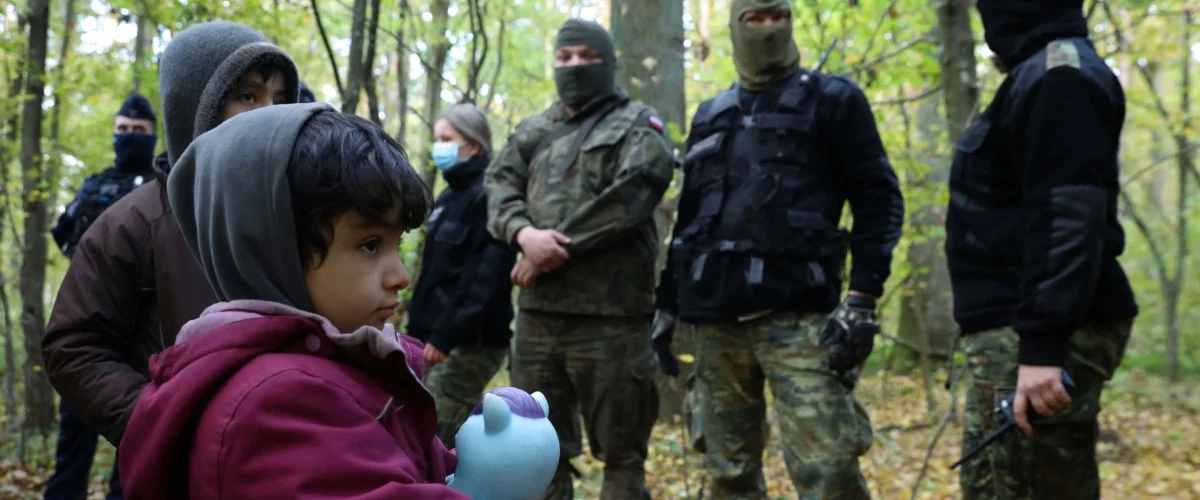European Union leaders have backed new sanctions on Belarus to pressure authoritarian ruler Alyaksandr Lukashenka to halt the flow of illegal migrants that the bloc says amounts to a hybrid attack.
European Commission President Ursula von der Leyen said after an EU leaders’ summit on October 22 that the bloc will “keep up the pressure” on Lukashenka, accusing him of instrumentalizing migration to retaliate against the European Union.
Thousands of illegal migrants have crossed from Belarus — mainly into neighboring Lithuania and Poland — prompting the two EU members to declare a state of emergency and bolster their borders.
The EU accuses Lukashenka of funneling migrants across the bloc’s borders to retaliate against sanctions on his government over a brutal crackdown on the opposition following last year’s presidential election that is widely considered to have been rigged.
After nearly five hours of discussions, EU leaders agreed in a final statement to “continue countering the ongoing hybrid attack launched by the Belarusian regime, including by adopting further restrictive measures against persons and legal entities, in line with its gradual approach, as a matter of urgency.”
Most of the migrants flew to Belarus from the Middle East and Africa, and were then helped across the border to Poland and Lithuania. Earlier this week, EU foreign ministers discussed possible measures against the Belarusian airline Belavia.
Von der Leyen, whose EU executive is responsible for drawing up sanctions, said Belarus is now looking at opening new routes to bring in migrants.
“It has offered further visa waivers to additional third countries. We will continue our engagement with these countries to limit this state-sponsored smuggling,” she said.
EU leaders also called for the return and full implementation of readmission agreements with countries where the migrants are coming from, “using the necessary leverage.”
Led by the EU’s Baltic members and Poland, about a dozen countries said before the summit that the bloc should fund the construction of physical barriers and use surveillance drones to stem migration.
But von der Leyen said the EU executive opposed such demands.
“I was very clear that there is a longstanding view in the European Commission and in the European Parliament that there will be no funding of barbed wire and walls,” she said.



















